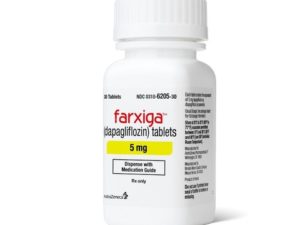 Patients receiving dapagliflozin after transcatheter aortic valve implantation (TAVI) saw no additional improvement in quality-of-life compared to patients receiving only the standard-of-care treatment.
Patients receiving dapagliflozin after transcatheter aortic valve implantation (TAVI) saw no additional improvement in quality-of-life compared to patients receiving only the standard-of-care treatment.
This is the headline finding of an analysis of the investigator-initiated DapaTAVI trial, a randomised study promoted by Spanish Society of Cardiology (SEC) and Cardiovsacular National Center of Cardiovascular Research (CNIC, Madrid) investigating the addition of the drug—known as Farxiga (AstraZeneca)—after TAVI. Primary results of the trial, which were presented at the 2025 American College of Cardiology (ACC) scientific session (29–31 March, Chicago, USA), showed that the addition of dapagliflozin among older adults undergoing the procedure, resulted in a significantly lower incidence of death or worsening heart failure than standard of care alone.
For the latest, prespecified analysis of the trial, investigators assessed the change in Kansas City Cardiomyopathy Questionnaire (KCCQ) score—which uses patient-reported outcomes to measure symptoms, physical and social limitations—from baseline to three and 12 months in both arms of the study to chart the potential impact of the addition of the drug on quality of life after the procedure.
What the investigators saw was that among the 964 trial patients who had a baseline KCCQ score, there was no significant difference between the two groups in the magnitude of their improvement at three or 12 months.
At 12 months, similar proportions of patients in the dapagliflozin and control groups showed clinically meaningful improvements, with 43.4% vs 45.4%, respectively, improving by >50 points, the investigators report in their publication of the findings in the Journal of the American College of Cardiology (JACC).
“These results highlight the profound effect of TAVI on symptom relief and quality of life in older adults with severe aortic stenosis,” study author Clara Bonanad-Lozano (Clinic University Hospital of Valencia, Valencia, Spain) and colleagues write in the JACC paper. “However, no additional improvement in health status—assessed by the KCCQ—was observed with dapagliflozin in those patients. Importantly, the prognostic benefit of dapagliflozin on the composite endpoint of all-cause death or worsening heart failure was consistent across the full range of baseline KCCQ-overall summary scores.”
The principal investigator of DapaTAVI trial, Sergio Raposeiras-Roubin (Alvaro Cunqueiro Hospital, Vigo, Spain), stated that there is a plausible biological rationale for expecting health status improvements with dapagliflozin in this context, as even after successful valve replacement, many patients continue to experience impaired functional capacity secondary to residual diastolic dysfunction, subclinical congestion, or myocardial fibrosis, mechanisms that SGLT2 inhibitors may positively influence through their diuretic, anti-inflammatory, and metabolic effects.
Based upon their findings, however, they state that the role of dapagliflozin appears to be primarily disease modifying—aimed at reducing clinical events—rather than enhancing perceived health status, adding: “Clinicians should not necessarily expect improvements in symptoms or quality of life attributable to dapagliflozin beyond those achieved by valve replacement alone.”
Several potential mechanisms may explain why dapagliflozin did not improve health status in this specific clinical context, despite its benefits in patients with heart failure, they add, noting that in patients with chronic heart failure, dapagliflozin has been shown to improve symptoms and quality of life through mechanisms such as natriuresis, reduction in ventricular filling pressures, improved left ventricular compliance, anti-inflammatory effects, and weight loss—effects that are particularly relevant in patients with persistent congestion and systemic neurohormonal activation.
In patients with severe symptomatic aortic stenosis undergoing TAVI, however, the primary determinant of symptoms and impaired health status is the fixed mechanical obstruction caused by the stenotic aortic valve. “Once this obstruction is relieved by valve replacement, there is an immediate and profound haemodynamic improvement that drives substantial symptomatic and functional recovery,” the investigators note.
Future trials should consider patients with persistent congestion, elevated biomarkers, or low KCCQ scores after TAVI, to better identify those patients who may benefit symptomatically from SGLT2 inhibition, Bonanad-Lozano et al suggest.










